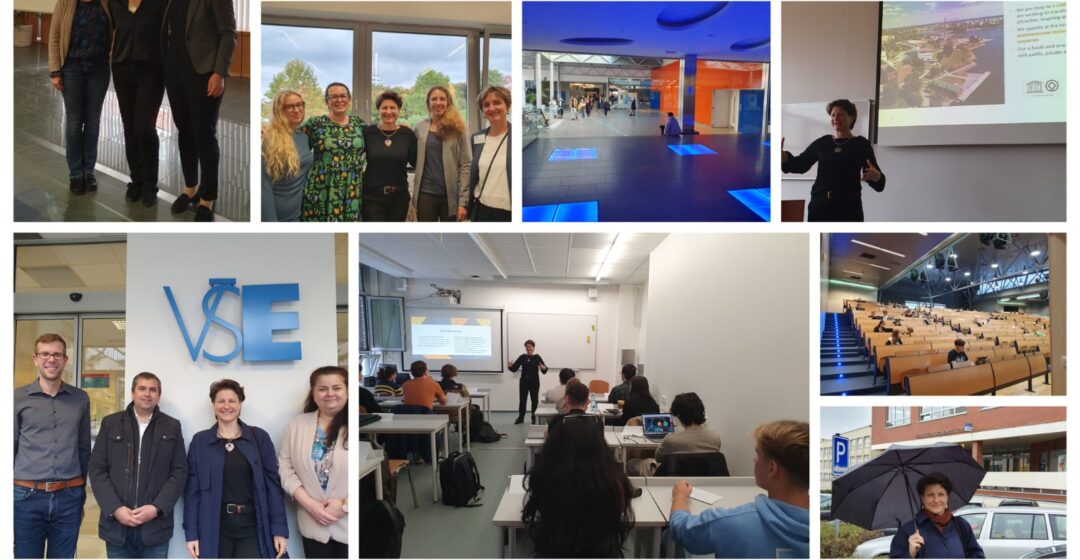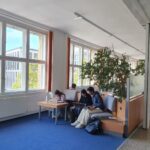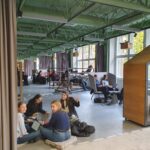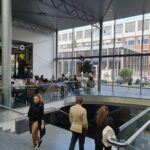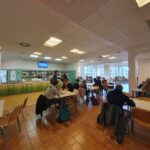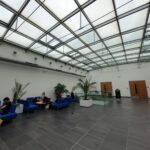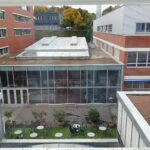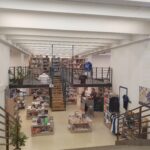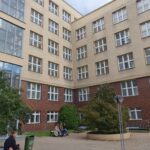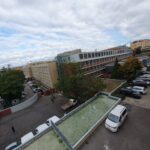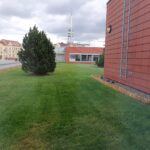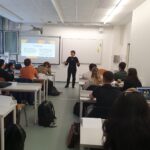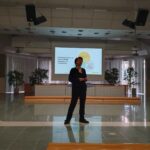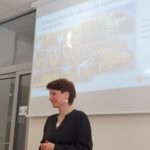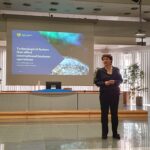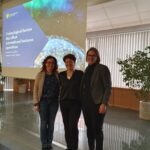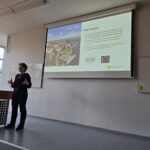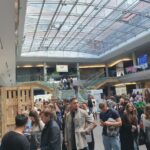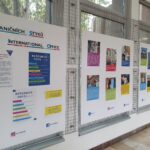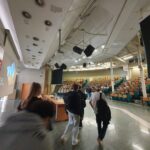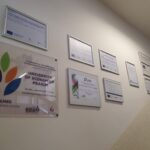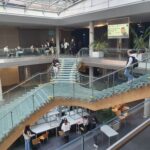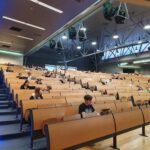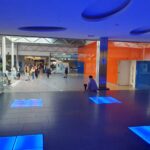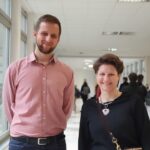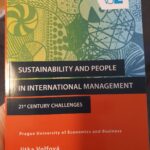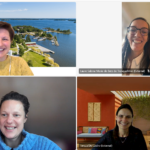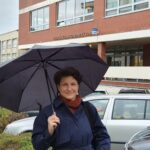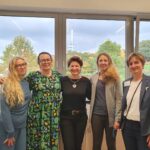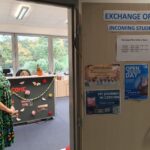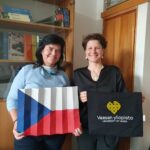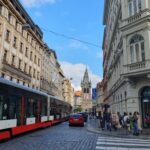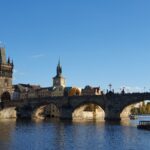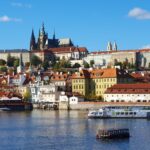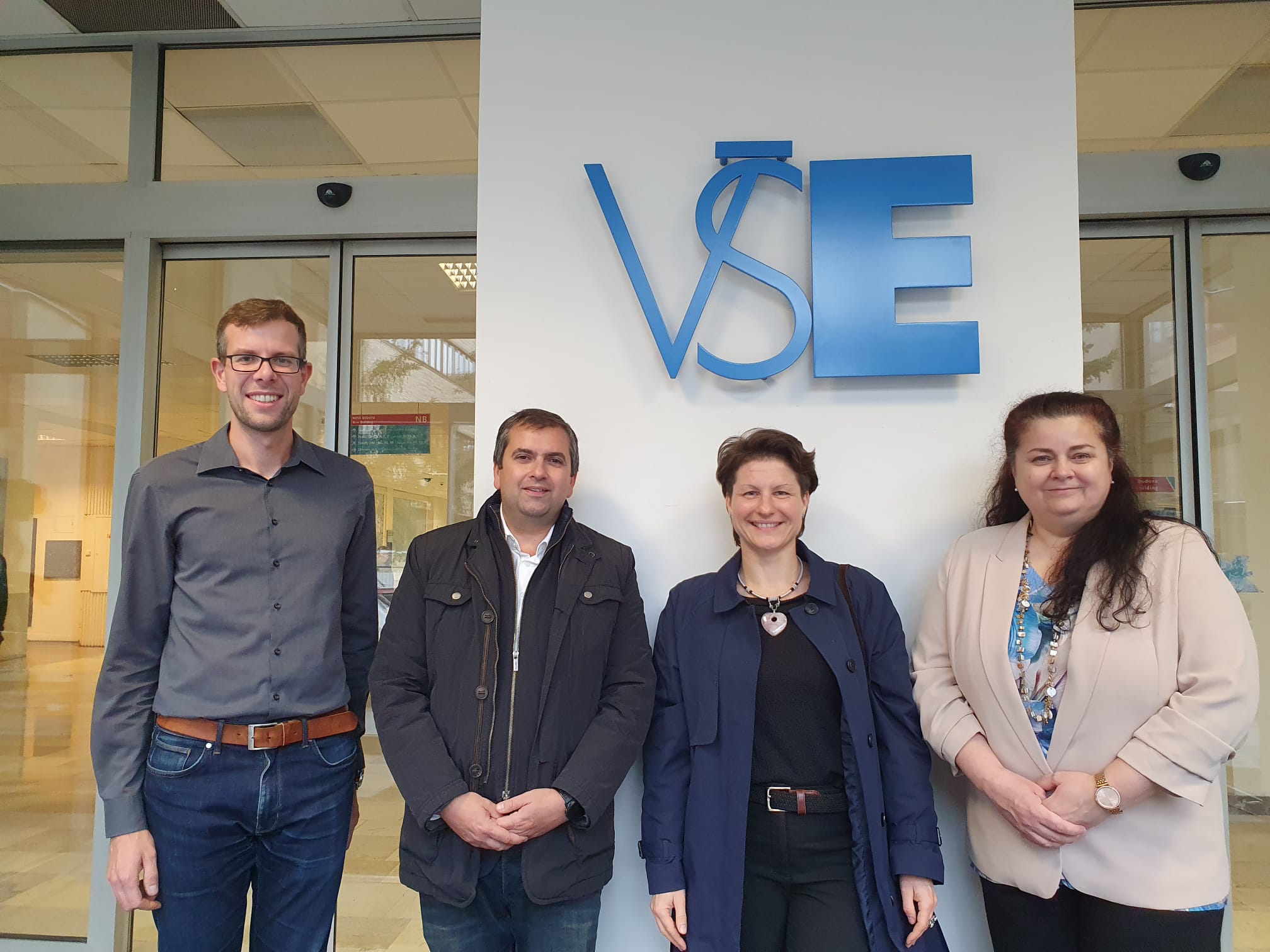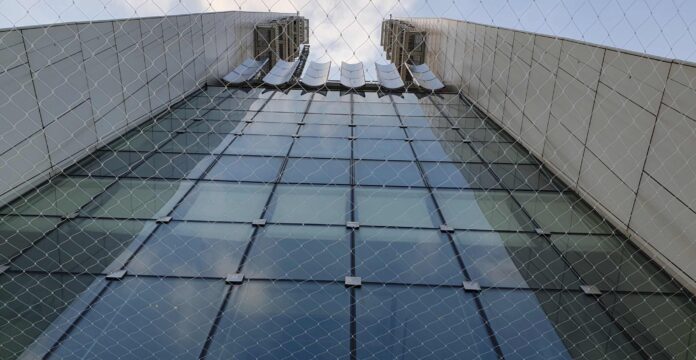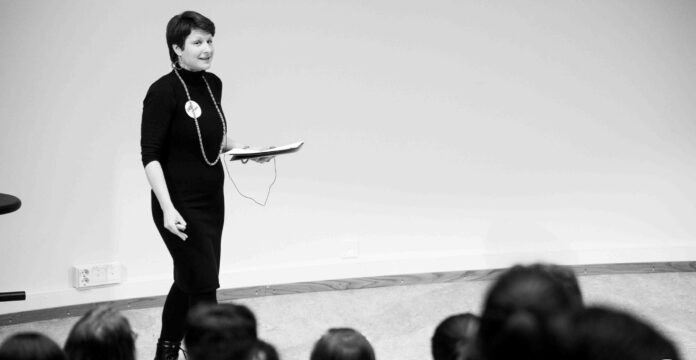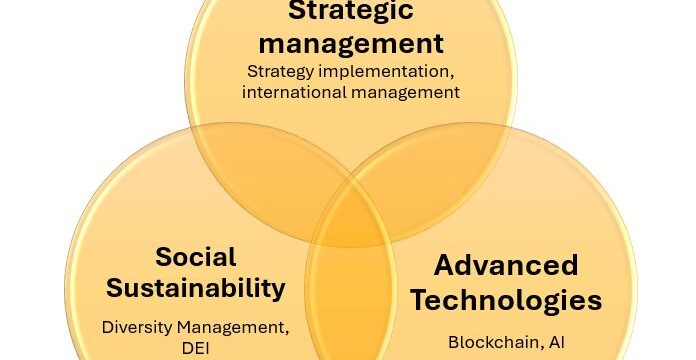Bee hives and community work for sustainability — sounds like something from a peaceful rural retreat? Not quite. It is, in fact, the vibrant and bustling campus of the Prague University of Economics and Business (Vysoká škola ekonomická v Praze – VŠE), located right in the heart of Prague, one of Europe’s most beautiful and dynamic capitals. And this was just one of many positive surprises!
During my week-long visit to this long-standing double-degree partner of the University of Vaasa, I was reminded how innovation, sustainability, and community engagement can come together to form a truly inspiring academic environment. The week was full of learning, discussions about research and teaching on advanced technologies in business, as well as further strengthening of our institutional collaboration.
A Living Example of Community-Driven Sustainability
As a scholar who explores strategy implementation, I was delighted to learn about VŠE’s Eco Team — a community of over 100 members that includes faculty, students, and administrative staff. Rather than being a symbolic committee, this team is a living, active network for implementing University’s sustainability strategy. Eco team is a voluntary engagement that is divided into smaller groups, each responsible for a specific aspect of the university’s sustainability strategy.
For instance, the Transport Team calculates the university’s carbon footprint and promotes more sustainable ways of commuting, such as public transport or cycling. Another group in the Eco Team focuses on well-being, discussing topics like healthy meals on campus and access to sports and recreational activities. These shared daily practices that are practiced and promoted widely among the University’s community makes sustainability strategy at VŠE live and meaningful for everyone on campus, not just a document known for sustainability manager.
And then there are the bee hives, located right on campus! We know that urbanization and sustainability do not go hand in hand, and practical steps taken by the university, such as having roof-gardens and green grass areas, bee hives to contribute to pollination, maintaining inner parks and outside caffes with green environments, refreshing water reservoirs and decorative water installations ensure that the balance between the urban development and nature is maintained.
Strengthening Academic Ties and Lots of Discussions on Advanced Technologies in Business
During my visit, I had the opportunity to deliver lectures and interactive seminars for bachelor’s and master’s degree students on advanced technologies in international business, exploring how innovations such as AI, blockchain, 3D printing, and others are transforming international business, global supply chains and strategy implementation. We analyzed real-world cases, discussed the ethical implications of emerging technologies, and reflected on how firms can integrate digital tools into (sustainable) business models.
I am extremely grateful to Academic director of the Bachelor of International Business & International Business Ass. Prof. Tomáš Sadílek who has been an amazing host and ensured that the week in Prague becomes a great success in terms of professional development, development of research and institutional collaborations. It was incredible to watch how professionally Tomáš handles large number of international guests giving care and attention to everyone. Meeting Ass. Prof. Eva Křenková, Dr. Ing. Iveta Černá and contributing to their course with my insights on technology in IB was another highlight. Heartwarming discussions with Ass. Prof. Eva Křenková we had after the official program is over will stay with me for a lifetime.
In addition to teaching in program courses, I conducted a faculty training session focused on integrating AI and blockchain topics into business education and shared examples of pedagogical best practices from the University of Vaasa. The level of engagement and curiosity among faculty was truly encouraging — it is clear that there is strong interest in advancing digital and sustainability-oriented education across disciplines. However, I was also delighted to learn from best practices shared by Dr. Tereza de Castro, Dr. Laure Sabine Marie, and Dr. Jitka Volfová.
What is it like to work or study at VŠE? An International, Industry-Connected University
As a program manager of Bachelor’s in International Business and an ambassador for internationalization at the School of Management, I often receive questions about how it is to study in our partner schools. So, exploring these questions was a very important part of my trip. While I knew VŠE is a great place to study and work, after the visit, my feeling was further strengthened by lots of facts and pleasant discoveries and increased joy that we have a long-standing partnership and collaboration.
VŠE is not only one of the largest and most prestigious universities for economics and business in Central and Eastern Europe (CEE), the largest public university of its kind in the Czech Republic, consistently ranked highly, that holds prestigious international accreditations like EQUIS and AACSB, but also a place where ideas for innovative management are actively put into practice. Each semester, VŠE hosts over 1,000 international students from around the world, creating a diverse and dynamic academic community.
The week I visited, the campus was buzzing with a three-day job fair, where companies came to meet students and present career opportunities. This close collaboration with industry is part of the university’s DNA — many faculty members have corporate backgrounds or continue working in industry alongside their academic roles.
One great example is my colleague Dr. Petr Procházka, who in addition to being active contributor in the above-mentioned Eco Team also contributes to sustainability strategy implementation in industry and internationally. Petr has been an active contributor to our joint EU-funded project DEI4SME and also introduced us to excellent experts, such as Pavla Skorpilova (who I also met when visiting Prague) and colleagues from EFRAG. Dr. Jitka Volfová who just published a manager-oriented book on sustainability and people in international management honored me with a copy of this book that came straight out from the publishing house! Many colleagues at VŠE often bridges education, research, and corporate practice — demonstrating how universities can act as connectors between academia, business, and society.
Another aspect that stood out was the number of visiting professors contributing to the curriculum. In just one week, I met colleagues Prof. Elena Makrevska Disoska from North Macedonia, Prof. Jelena Filipovic from University of Belgrade, and Dr. Emil Martirosyan from Vienna, all teaching short intensive courses alongside VŠE’s local faculty. This international teaching exchange not only broadens the learning experience for students but also fosters continuous professional exchange among educators.
VŠE’s international office team impressed me with their professionalism and dedication. They handle both incoming and outgoing student mobility with remarkable efficiency and warmth — offering everything from accommodation assistance to integration activities. Meeting with Anna Suchá and discussion about the arrival and settling process of our exchange and double-degree students was very productive. Conversations with IB guarantor, Ass. Prof. Josef Taušer about program design and the future direction of international business education were equally thought-provoking and assuring about the quality of studies.
It was fantastic to finally meet live and learn from years of experience accumulated by Ing. Ivana Krejčí, Program Coordinator of International Business (Master Program), and discuss with a wonderful colleague Bianca Seppová, Program Coordinator of International Business (Bachelor’s Program) overseeing double-degrees with the program that I manage.
The university’s ties to Finland are also surprisingly deep: one of the coordinators – Zuzana Manninen – who is managing outgoing students speaks fluent Finnish and even has family connections to Finland. It was a small but heartwarming discovery and a reminder of how small our world is.
Of course, no visit to VŠE would be complete without experiencing the magic of Prague itself. The city is everything you might expect — clean, safe, and full of history, art, and culture — yet it also has a modern, energetic rhythm. It is easy to see why studying here is such a rich experience for students: a world-class education combined with an inspiring urban environment. For our students at the University of Vaasa, the opportunity to spend a semester or pursue a double degree in this setting is an invaluable way to broaden horizons, gain international perspective, and connect with one of the most dynamic academic communities in Europe.
Research Dialogue and Future Collaboration
Another rewarding part of the visit was the series of research-focused discussions with my VŠE colleagues. Together with Doc. Ing. Zuzana Křečková and Ass. Prof. Tomáš Sadílek, we explored potential collaborations around themes such as technological complexity in business and digital leadership — areas that closely align with our shared interests and expertise. These exchanges reminded me how valuable it is to nurture long-term institutional partnerships. While new collaborations often receive the most attention, there is something uniquely productive and rewarding about strengthening partnerships that have matured over time, grounded in trust, mutual respect, and shared academic goals.
